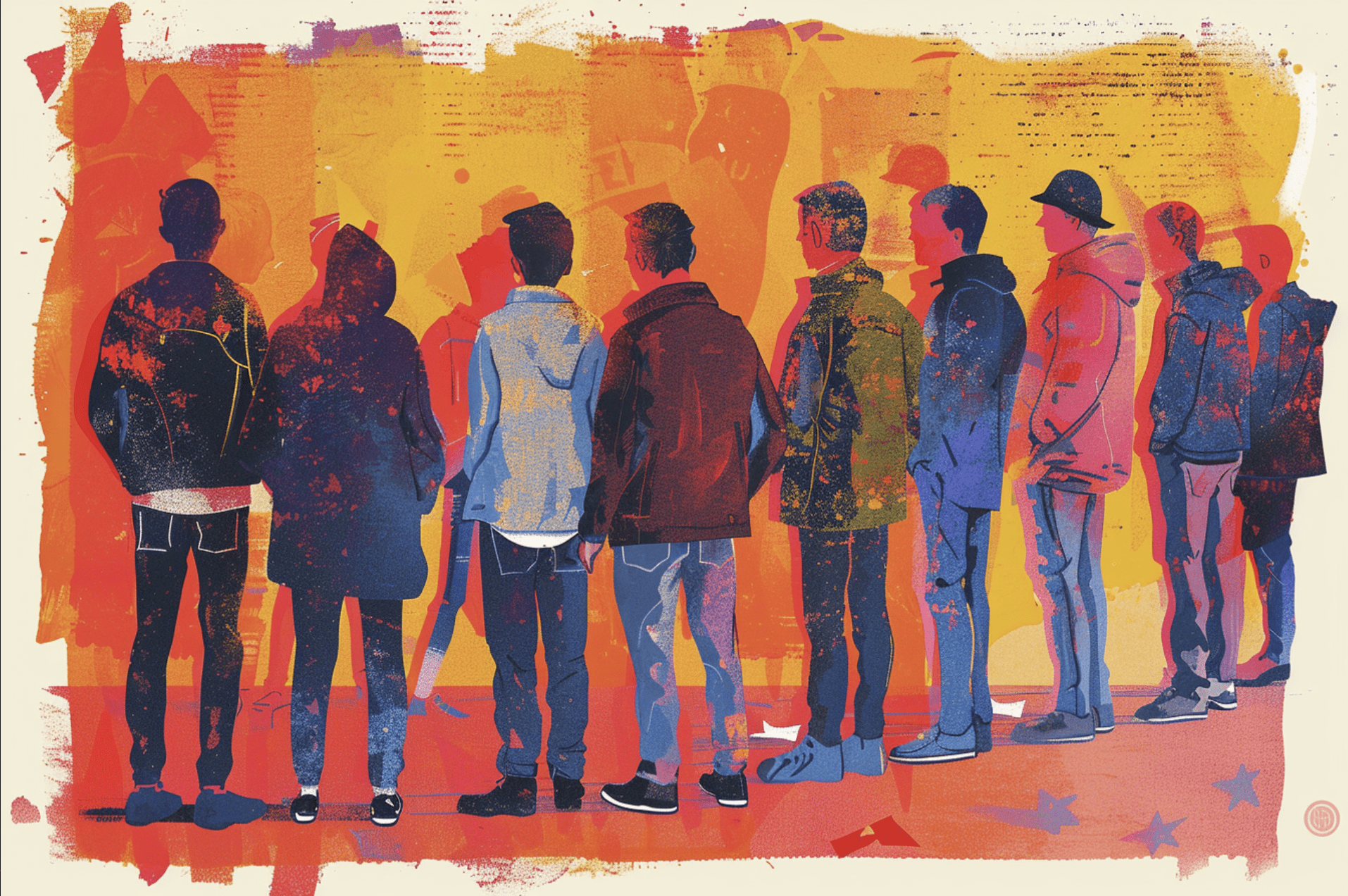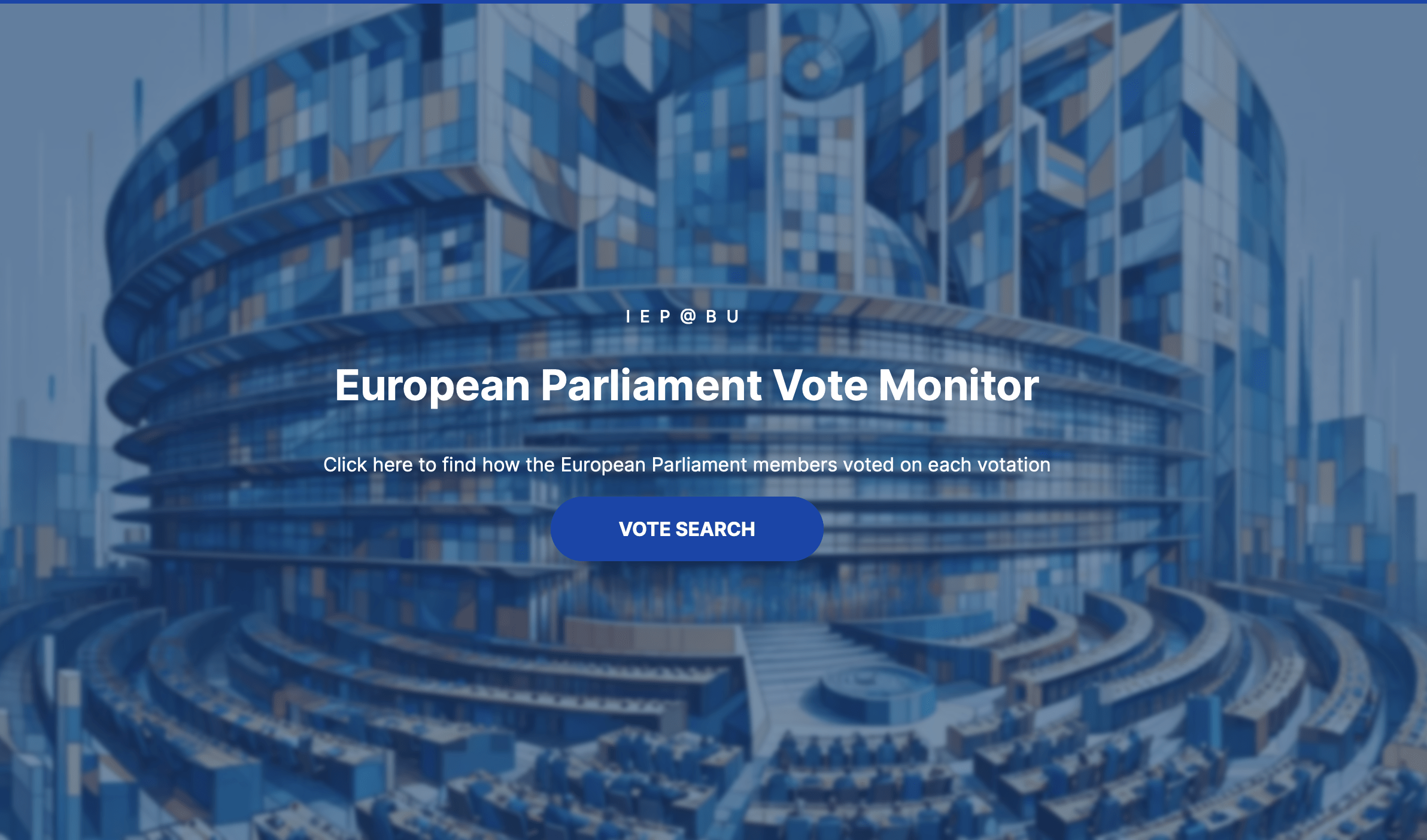Catch-22: Europe and the Youth
"I live in Milan, I vote for Europe." This is the name of the initiative through which the Municipality of Milan, the European Parliament, and the Institute for European Policymaking at Bocconi University worked together to chat with Milanese residents about Europe.

"I live in Milan, I vote for Europe." This is the name of the initiative through which the Municipality of Milan, the European Parliament, and the Institute for European Policymaking at Bocconi University worked together to chat with Milanese residents about Europe.
“Chat” might seem an odd choice of word for such an institutional project; one might prefer "raise awareness" or "engage", frequently used in official documents. But I chose it deliberately because it better captures the spirit with which I approached the project, aiming for a horizontal and informal interaction with participants. This approach ensured that their engagement was not merely one of passive listening but of active involvement.
I get that this might sound like a hollow refrain suited for any public interaction, but I do believe it holds particular significance in the context of a project like this. For years, Europe has been presented to us in a top-down manner, as a set of rules imposing decisions on our lives from distant Brussels. Anytime Italian politics had to justify an unpopular choice, it was always because “the EU wants it this way”. The result is a perception of the European Union as a remote entity, only showing up to preach some unwanted sermon.
Hence, I feared that when being introduced as “Professor Galeone from Bocconi University” (incorrectly I might add, since I’m a researcher, but when introducing me usually people Google my name and the first result are the courses I teach), the audience would feel like some grey professor who comes in, lectures, and leaves. In that case the project would not only have failed, it would have actually achieved the opposite effect: further alienating citizens from Europe.
So I tried to be as approachable as I could, even making sure the outfit matched the intent: I took out the button-down shirt I usually wear at the office and put on a casual t-shirt to go with jeans.
Catch-22
And the disguise as a “regular” person seemed to work. "Oh finally a young resident" smiled the ladies sitting in the audience chairs. Actually, he is the speaker, the organizers explained. "So where are the young people?". They no-longer-smiling ladies weren’t wrong: the youngest member of the audience was in her fifties. The organizers explained that even though the initiative had circulated in various chats, most young people had replied that they were still at work. So much for the stereotype of the lazy youth – at 6:30 PM they were either studying for exams or still at work.
Here’s the first lesson for the EU: if you want to talk to young people, really go to them. Not only where they are, but also when they are available. With this we dove right into the heart of the conversation, which was exactly about Europe and young people. Starting with young people’s absence also at the polls: why don’t they vote?
I believe it’s due to a sort of "Catch-22" mechanism. Young people feel like politics is distant from their problems and therefore vote less; but precisely because they vote less, politics cares less about them. How do we resolve this?
Where Are the Young People
Both sides can try to make some way towards each other: projects like this one, where institutions try to connect with young people, are a step in that direction. But if young people aren’t there? Well, let’s go to them.
Thanks to the organization by some teachers at the Liceo Vittorini and the Assessorato for Civic Services of Milan, a meeting was organized with the older students of the high school – those who will be voting for the first time this year. We went to them one morning alongside the European Parliament’s liaison office in Milan. At their school, at a convenient time in their everyday life, the room was full of students.
We covered many topics, from European institutions, how to vote, opportunities for the youth (Child and Youth Guarantee, Erasmus+, Creative Europe, European Solidarity Corps), to what I believe is the heart of the matter: Europe is the most valuable institutional ally for young people. It is the entity that engages the most in long-term planning, internalizing the difficulties of our economic and social system, in which young people are not only fewer but also increasingly marginalized and deprived of opportunities.
While Italy works with a three-year budget law, the EU has a seven-year budget horizon. States are constantly hostage to electoral competitions at various levels of government and thus prioritize the here-and-now, which is influenced by the larger voting generations.
The EU, however, can plan with foresight, carrying out wide-ranging actions that don’t cash in immediate votes but help young people better educate themselves and find dignified work. This way they can realize their potential and even settle down if they so choose – ensuring the system’s demographic long-term sustainability.
Therefore, the most valuable action we can take as young people (I include myself here, at 30, I’m basically a child in Italy) is to vote for the institution that protects our future the most. It’s the only way to overcome that Catch-22: if politics doesn’t bridge the gap, we young people must. We must claim the representation we need. And, personally, I have to say I’m optimistic against the tide.
While many lament increasing youth apathy, I see, especially among the youngest, rising activism: from climate marches, to university protests against rent hikes, all the way to recent demonstrations for Palestine. It’s not about agreeing or disagreeing with these causes; the mere fact that they exist shows a generation becoming more aware of itself and finding a voice. Now it’s up to us to make that count, not only in the streets but also in the voting booths.
As the European elections approach, the Municipality of Milan, in collaboration with the European Parliament Office in Milan and Bocconi University's Institute for European Policymaking (IEP@BU), has promoted and coordinated a campaign to highlight the importance of Milanese young citizens' participation in the vote: "I live Milan, I vote for Europe."

the most valuable action we can take as young people (I include myself here, at 30, I’m basically a child in Italy) is to vote for the institution that protects our future the most

If you are interested in the European Parliament activity, please check a new tool that the IEP@BU has just launched, with professors Simon Hix and Abdel Noury: the EPVM - European Parliament Vote Monitor
IEP@BU does not express opinions of its own. The opinions expressed in this publication are those of the authors. Any errors or omissions are the responsibility of the authors.
